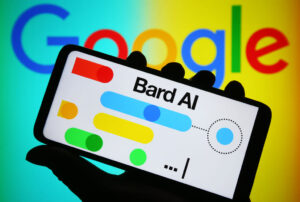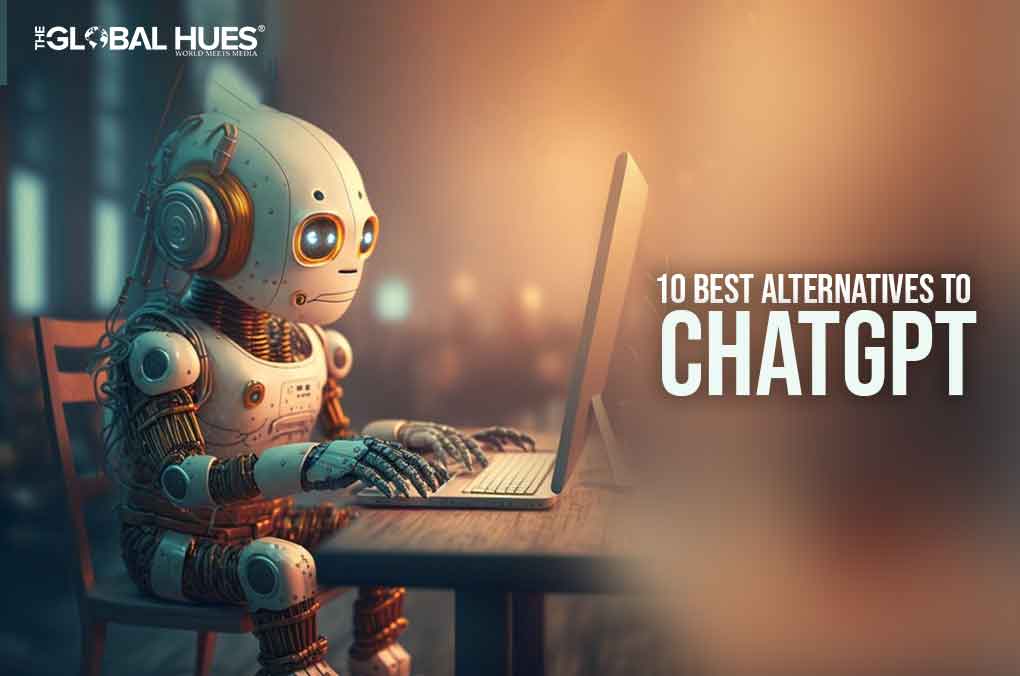ChatGPT is gaining lots of popularity these days. It has become a topic for discussion for everyone; this AI is so advanced that people are afraid of their jobs. Students are using it to its full potential for their assignments but giving a hard time to the teachers and professors. Although there are some pros and cons to having a powerful AI, it’s also a reminder that technology is evolving at a great rate. Various people are using ChatGPT day and night for literally anything and everything; its prompt and exact answers to the users’ questions make it even better than a Google search.
However, continuous searches on ChatGPT’s servers sometimes make it inaccessible, and that is when people start thinking about alternatives to ChatGPT.
Let’s take a look at the 10 best alternatives to ChatGPT, which will provide somewhere similar results.
1. Google Bard

When ChatGPT gained popularity, people set their eyes on its potential competitor, Bard AI. Bard is based on a large language model (LLM), which is developed by Google. This AI is gaining much publicity not only because it comes from Google but also because it is very useful and handy. Bard is still under development and learning, but that doesn’t stop it from generating informative and creative responses. Currently, it is available in three languages: English, Japanese, and Korean.
What makes Bard unique is its better understanding of the world as it is trained on a huge data set of code as well as text, and its comprehensive response to the user’s questions because of the integration of Google search.
2. Microsoft Bing AI
If you are unaware of Bing AI, then this might be a great discovery for you. It’s probably present on everyone’s Windows PC as it is integrated into Microsoft Edge. The integration of AI in a web browser is considered very convenient. It provides options for different kinds of responses according to the user’s needs, which are
- Creative
- Balanced and,
- Precise.
These options make this AI unique and convenient. This AI is based on the LLM (large language model) and powered by the OpenAI GPT-4 model, which is indeed a powerful language model.
3. Chatsonic
Chatsonic is also an AI, as revolutionary as ChatGPT, and it also comes with GPT-4 capabilities. It can also indulge in conversation and respond in a comprehensive and informative manner; in addition to that, it can also generate creative text like poems, songs, letters, etc.
This AI chatbot can be easily accessed on a website, and it can also be used as a Chrome extension. This brings us to the affordability of Chatsonic. It offers two services: one is unpaid and another is paid. The unpaid version lets you generate up to 10,000 (ten thousand) words per month.
4. Jasper Chat
JasperChat is a conversational AI chatbot used for casual as well as informal conversation. However, when it comes to automating businesses it has an edge over other AI chatbots.
It is powered by the Jasper language model which is a large language model and just like other AIs, it is also trained on large data sheets. It can create original content which are SEO optimized, generate a response in 25+ languages, help customers by answering product-related questions, etc. Overall, it is a powerful chatbot which can automate various customer service tasks along with other normal functions of an AI Chatbot.
5. Pi
Pi is a great chatbot, which, in our opinion, isn’t getting as much attention as it deserves. This AI has six voices to choose from, all of which sound real; it is user-friendly as well as empathetic in its response. A conversation with Pi is more like a conversation with a real person, as it responds in an empathetic tone and not in a very technical manner.
The user interface of the website is also minimalist, easy, and beautiful. It is available on the website, WhatsApp, Instagram DM, and the iOS app.
6. Chai
Chai is an AI that also has its focus on human-like response generation; however, it has various characters, and each one has a different personality, which makes the user experience great. The way these characters reply is determined by their respective personalities.
This is available on both the Google Play Store and the Apple App Store, with free and paid versions.
7. Perplexity AI
Perplexity AI isn’t a conversational AI but is inclined towards the informational side. It is more like an advanced search that gives exact answers without having any character.
However, the AI does what it is made to do, which is to give answers. This AI can be very useful in generating answers to a variety of questions ranging from science to riddles to history, etc. Hence, If you are someone looking for an AI for learning and research, this AI can be a great tool.
8. HuggingChat

Hugging Chat has all the features to be a great alternative to ChatGPT; it can perform all its functions, whether it is writing a poem, an article, or code; it covers them all. It is also free to use and open-source.
This AI chatbot is based on LLaMA (large language model meta-AI) but still stands as an effective AI.
9. Replika AI
This AI also focuses on providing companionship to users; it learns from the user’s chat and responds accordingly; the more interaction, the better the response.
This Chatbot is specially designed to help people with mental health and well-being, which is why it isn’t very useful when provided with complex questions.
10. GitHub Copilot
If you are a programmer or coder, then GitHub Copilot might be a great tool for you. It provides features like code completion, code generation, code linting, code refactoring, and code navigation.
Summing Up
There’s no doubt how helpful ChatGPT is, but there are other AI chatbots too that have some very unique features. As all the AIs are constantly learning and making themselves better and better every day, it’s better to have your options open.




